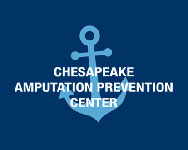 The annoying or painful feeling in the ball of your foot could be any number of things. If you are someone who often wears high heels or places a lot of pressure on your feet as a runner, the cause of the discomfort could be a neuroma. Without diagnosis and treatment, a neuroma can affect your mobility and quality of life. At Annapolis Foot & Ankle Center, our board-certified foot and ankle surgeons treat neuromas using noninvasive measures like custom orthotics and physical therapy and, when necessary, can perform surgery to resolve the problem once and for all.
The annoying or painful feeling in the ball of your foot could be any number of things. If you are someone who often wears high heels or places a lot of pressure on your feet as a runner, the cause of the discomfort could be a neuroma. Without diagnosis and treatment, a neuroma can affect your mobility and quality of life. At Annapolis Foot & Ankle Center, our board-certified foot and ankle surgeons treat neuromas using noninvasive measures like custom orthotics and physical therapy and, when necessary, can perform surgery to resolve the problem once and for all.
What Is a Neuroma?
Neuromas are small, non-cancerous growths that affect one or more nerves in the balls of the feet. They cause a thickening of the nerve tissue, resulting in neuroma pain and general discomfort. Anyone can experience them, but they tend to affect people who wear shoes that are tight or crowd the toes, like high heels. Common symptoms of neuromas include:
- Feeling like there’s a small rock or pebble in your shoe
- Pain in the ball of the foot
- Pain that radiates into the toes
- Tingling or numbness
As the condition progresses, you might also find it difficult to stand or walk for extended periods. Several factors increase the risk of neuromas, including wearing high heels or other tight shoes, doing a high-impact sport like running or jogging, participating in sports that require tight footwear, like rock climbing or skiing, and having certain foot deformities, such as hammertoes, bunions, or high arches.
When Should I See a Podiatrist About Neuroma Pain?
Foot neuromas affect everyone differently. If you experience pain in the ball of your foot that lasts for several days and doesn’t respond to at-home treatments like rest, ice, or over-the-counter pain medication, we encourage you to contact Annapolis Foot & Ankle. This is especially true if your pain persists after changing shoes or modifying activities that place stress on your foot.
To determine if you have one, our podiatrist will ask about your symptoms and review your health history. Afterward, he will physically examine your feet, gently pressing on the balls to pinpoint areas of tenderness or warmth. If a physical exam isn’t enough to determine the source of your discomfort, we might order additional diagnostic tests like X-rays, an MRI, or a bone scan. These measures provide detailed images of the bones, joints, and soft tissues in your feet.
What Treatments Are Available for Neuromas?
Annapolis Foot & Ankle Center treats neuromas using a combination of lifestyle changes and noninvasive treatments, including physical therapy, shoe modification, orthotics, and over-the-counter pain medication.
If your symptoms persist or worsen even after implementing these measures, surgical intervention may be necessary. There are several surgical options for foot neuromas, including:
- Nerve decompression. This procedure involves releasing pressure on the affected nerve by cutting surrounding tissues or ligaments.
- Nerve removal. If the neuroma is severe and causing significant pain, the affected nerve may be removed. This procedure is typically reserved for severe cases and is not a common treatment option.
Regardless of the specific surgical technique used, foot neuroma surgery is typically an outpatient procedure, and patients can expect to return to normal activities within a few weeks. Recovery time may vary based on the severity of the neuroma and the specific surgical procedure used. Discuss the risks and benefits of foot neuroma surgery with one of our skilled surgeons to determine if it is the right treatment option for you.


